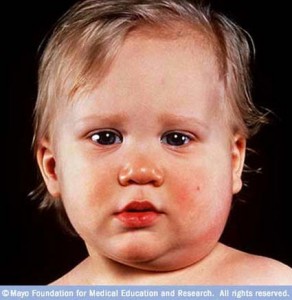-
When There’s a Mumps Outbreak it Travels Quickly!
LA CROSSE, Wis. — Mumps is no longer very common in the United States, but when an outbreak does occur, it can spread quickly and affect anyone not immune from having had the mumps or the vaccination.
“Living or being in crowded environments can be a major factor in mumps outbreaks,” says infectious diseases specialist Raj Varatharaj Palraj, M.B.B.S., at Mayo Clinic Health System – Franciscan Healthcare La Crosse. “Being in places such as classrooms, playing on the same sports team or living in a dormitory with someone who has mumps contributes to spread of the virus.” Dr. Varatharaj Palraj says that mumps is spread by droplets of saliva or mucus from the mouth, nose or throat that is produced when an infected person coughs, sneezes or talks.
Symptoms include:
- Swollen, painful salivary glands on one or both sides of your face
- Fever
- Headache
- Weakness and fatigue
- Loss of appetite
- Pain while chewing or swallowing
The MMR (measles, mumps, and rubella) vaccine is the best way to prevent mumps.
Although most people recover fully, severe complications can occur with mumps. “Swelling in other parts of the body can occur. If you notice any swelling or pain in areas of your body, seek immediate medical attention,” states Dr. Varatharaj Palraj. “If you get sick and the symptoms are mild, it will need to run its course since it is a viral infection. Washing hands often with soap and water, covering your mouth when you cough or sneeze, minimizing close contact and not sharing utensils with other people will help reduce spread of the virus. Seek medical attention before it gets worse.”
Complications within your body may include your testicles, pancreas, brain, ovaries or breasts, and can include temporary or permanent deafness.
Mayo Clinic Health System also recommends you stay up to date on your MMR vaccination through your primary care provider or your local health department.
Related Articles







